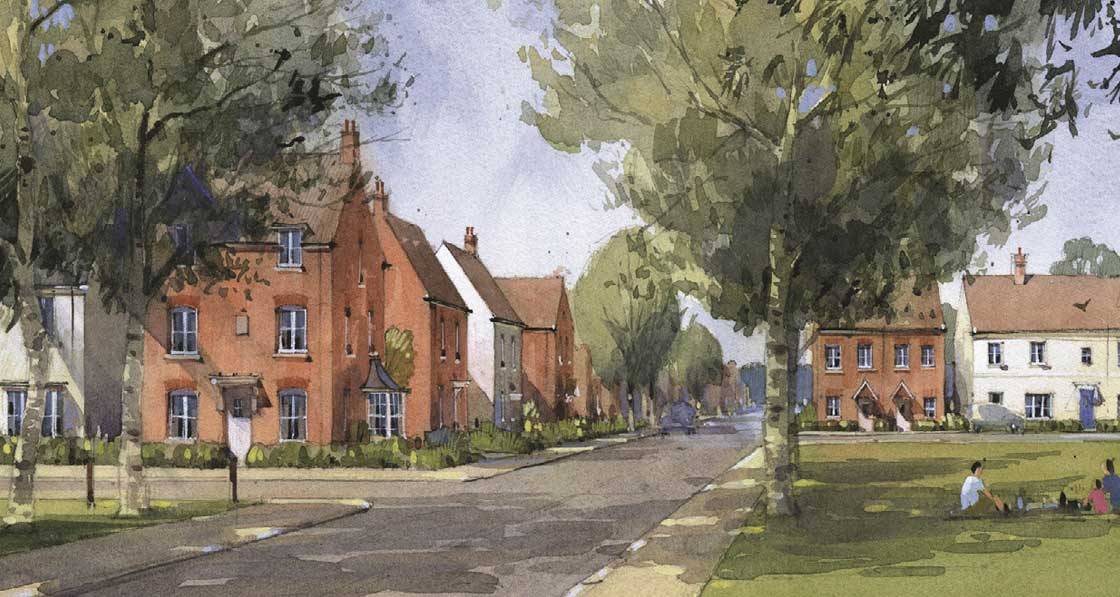
- Government
- Posted
More UK councils adopt passive house standard
This article was originally published in issue 31 of Passive House Plus magazine. Want immediate access to all back issues and exclusive extra content? Click here to subscribe for as little as €10, or click here to receive the next issue free of charge
Fareham Borough Council has adopted a passive house policy for its Welborne Garden Village project near the M27, outside Southampton. The policy states that 10% dwellings on the site should be built to the passive house standard “unless it can be demonstrated to be unviable by means of a financial assessment”.
According to the council, Welborne will be a “a self-contained Garden Village with thriving new district and local centres, new jobs, schools, facilities, shops and community facilities” connected by footpaths, cycle lanes and new bus services, with a large central park at its heart. Welborne is expected to see the construction of around 6,000 new homes over the next 25 years, meaning it could become a significant hub of passive house construction.
Bristol City Council’s new draft local area plan also explicitly encourages the use of the passive house standard, and states that passive-certified buildings will be exempt from meeting other local authority targets relating to carbon emissions and renewable energy, as well as being exempt from the requirement to submit an energy strategy at planning stage. Such exemptions are an implicit endorsement of the passive house standard’s inherent ability to deliver significantly reduced energy consumption and carbon emissions in buildings, without the need for extra verifications or assessments.
Glasgow City Council meanwhile, which recently completed a five-storey passivecertified social housing tower, has now included the standard in a suite of options for meeting its local sustainable housing targets. It has also made certified passive houses exempt from its requirement for renewable energy generation in new developments.
These tentative moves follow on from the pioneering work of Exeter City Council, who apply the passive house standard to all new council-built dwellings, and Norwich City Council, which is targeting the construction of 1,000 passive house homes over the next decade, and is already a significant centre of UK passive house construction.
Further councils across the UK are expected to follow suit, now that over 200 local authorities across the country have declared climate emergencies. Passive House Plus is currently working with the Passivhaus Trust to gather information on local authorities that have adopted policies that support or mandate the passive house standard. If you know of any other such policies, email us on This email address is being protected from spambots. You need JavaScript enabled to view it.







